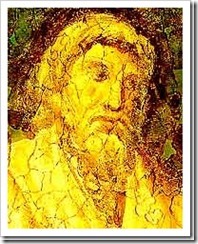Lactantius (ca. 240 – ca. 320)
 NOTE : Lucius Caecilius Firmianus Lactantius was an early Christian author who became an advisor to the first Christian Roman emperor, Constantine I, guiding his religious policy as it developed, and tutor to his son.
NOTE : Lucius Caecilius Firmianus Lactantius was an early Christian author who became an advisor to the first Christian Roman emperor, Constantine I, guiding his religious policy as it developed, and tutor to his son.
“It follows that I show for what purpose God made man himself. As He contrived the world for the sake of man, so He formed man himself on His own account, as it were a priest of a divine temple, a spectator of His works and of heavenly objects. For he is the only being who, since he is intelligent and capable of reason, is able to understand God, to admire His works, and perceive His energy and power; for on this account he is furnished with judgment, intelligence, and prudence. On this account he alone, beyond the other living creatures, has been made with an upright body and attitude, so that he seems to have been raised up for the contemplation of his Parent. On this account he alone has received language, and a tongue the interpreter of his thought, that he may be able to declare the majesty of his Lord. Lastly, for this cause all things were placed under his control, that he himself might be under the control of God, their Maker and Creator. If God, therefore, designed man to be a worshipper of Himself, and on this account gave him so much honor, that he might rule over all things; it is plainly most just that he should worship Him who bestowed upon him such great gifts, and love man, who is united with us in the participation of the divine justice. For it is not right that a worshipper of God should be injured by a worshipper of God. From which it is understood that man was made for the sake of religion and justice. And of this matter Marcus Tullius is a witness in his books respecting the Laws, since he thus speaks: “But of all things concerning which learned men dispute, nothing is of greater consequence than that it should be altogether understood that we are born to justice.” And if this is most true, it follows that God will have all men to be just, that is, to have God and man as objects of their affection; to honor God in truth as a Father, and to love man as a brother: for in these two things the whole of justice is comprised. But he who either fails to acknowledge God or acts injuriously to man, lives unjustly and contrary to his nature, and in this manner disturbs the divine institution and law.” (A Treatise on the Anger of God, Chapter 14)
Leave a Reply
You must be logged in to post a comment.